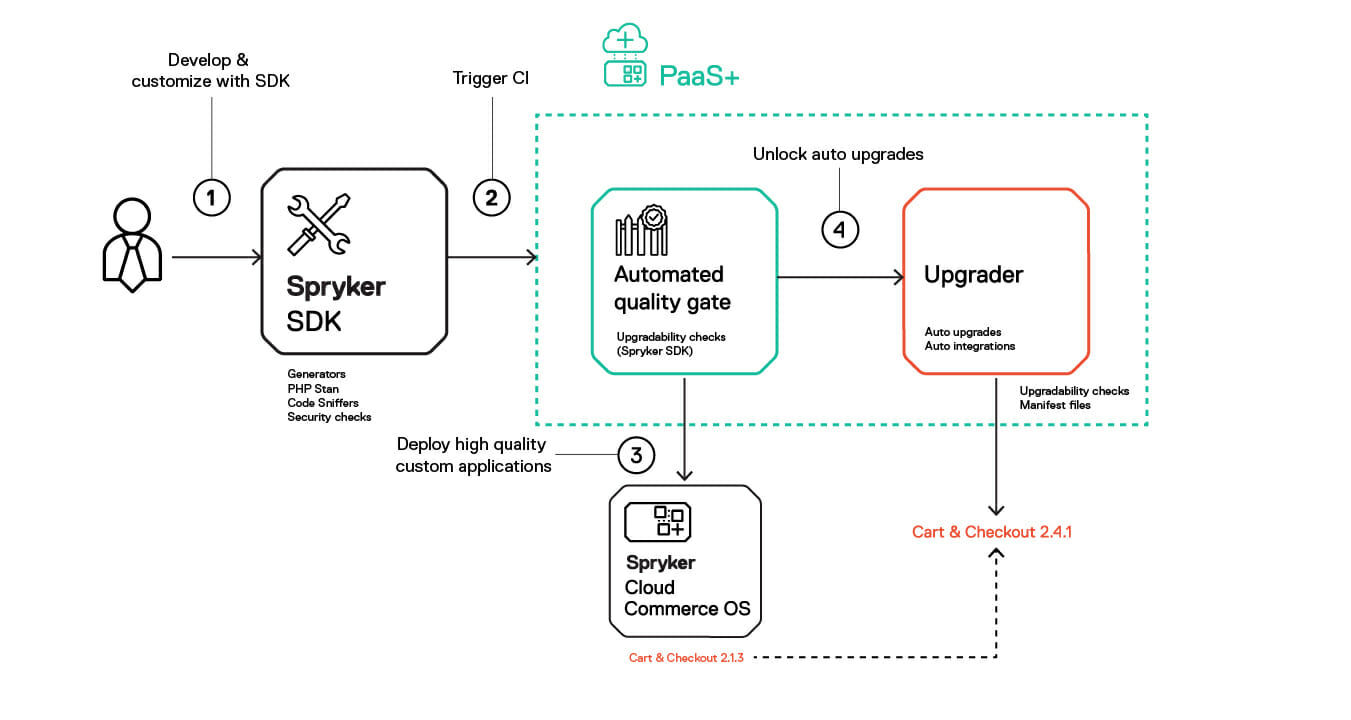Cloud
From PaaS to PaaS+: Why You Need An Upgrade
The concept of Platform-as-a-Service (PaaS) has given rise to a much easier and streamlined software development process. Enterprises who typically opt for this cloud-based model enjoy the autonomy that comes with developing, running, and managing their applications on a third-party provider’s platform.


The concept of Platform-as-a-Service (PaaS) has given rise to a much easier and streamlined software development process. Enterprises who typically opt for this cloud-based model enjoy the autonomy that comes with developing, running, and managing their applications on a third-party provider’s platform.
With PaaS, details such as servers, storage, virtualization, networking resources, and everything related to infrastructure are managed by the provider. However, developers within customer teams control their applications and data. The cloud model proves to be advantageous in that not having to worry about hosting or infrastructure can save companies time and provide much-needed flexibility for their IT departments.
By 2025, the Platform-as-a-Service market is expected to reach about $88.11 billion at a Compound Annual Growth Rate (CAGR) of 13%. Aside from the countless benefits that PaaS solutions provide, we could also attribute its rising popularity to a shortage of developers. Recent reports suggest that the global talent shortage could skyrocket to about 85.2 million by 2030. For organizations looking to maximize their lean resources, prioritizing developer productivity when thinking about what solution to adopt could be a critical step to take.
The Spryker Cloud Commerce OS is one of such solutions built to constantly optimize the experience of developers and solve real-life business challenges. Ever since its inception, Spryker’s PaaS-based solution has been enhanced with the user in mind. The overarching goal has always been to give enterprises a chance to focus on their businesses without being burdened with managing their entire technology stack. Additionally, a core focus for Spryker has always been empowering these businesses with the tools they need to make platform updates and customizations.
The year 2020 ushered in a uniquely challenging global business environment, one in which companies have had to accelerate their digital transformation process and address critical issues such as cyber security, talent retention, and sustainable growth amid an economic crisis. To lessen the load for businesses, Spryker has introduced a few changes to its existing PaaS solution. Business problems such as disregarded upgrades (either due to insufficient manpower or cost), security vulnerabilities (which have been a prevalent issue during the global pandemic), and the inability to keep up with new releases are all being solved with Spryker’s newly designed PaaS+.
As much as the freedom to make customizations produces good results for companies, it can sometimes deter their developers from efficiently upgrading to recent versions of the Spryker Cloud Commerce OS. The failure to make the appropriate upgrades creates an added layer of complexity for platform vendors such as Spryker. Inadequate upgrades or the lack thereof makes it more challenging for the vendor to guarantee a consistent quality of service.
Spryker’s PaaS+ is a service that directly responds to this drawback in two innovative ways. One is by ensuring compliance with a new quality gateway for more predictable upgrades; two is by introducing automated and semi-automated upgrades that reduce general upgrade efforts and cost.
So how exactly does PaaS+ enable seamless upgrades?

Seamless upgrades start with SDK. The process begins with a developer (on the client’s team) creating and customizing their code and then deploying the code to Spryker’s solution. When the process is initiated, the Automated Quality Gate takes effect. The quality gate checks the code to determine if the code is indeed quality. If the code follows the best practices and standard requirements set by Spryker, then automated upgrades are immediately performed.
By creating a more seamless and automated process for upgrades in the cloud, Spryker Cloud Commerce OS users can maximize the productivity of their development teams. The shift in responsibility will also provide added business value in the form of a lower total cost of ownership for customers and increased speed of their internal operations. Relying on semi-automated upgrades and code quality standards will leave enterprises with more time and resources to innovate at a much quicker pace. An added benefit of PaaS+ is that companies can make high-quality customizations that do not compromise upgradability.
Minimal effort upgrades go a long way to prevent cost overrun. With a little more budget and human capital, enterprises will have the opportunity to invest in their e-commerce platform and ultimately build a much more viable digital commerce business.
Thinking about upgrading from PaaS to PaaS+? You can learn more here!